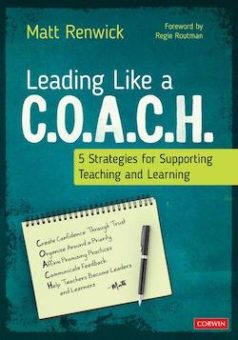4 Books Worth the Time of New School Leaders
by Matt Renwick
 I read professional books like movie critics watch films: with a critical lens and respect for my time. If I am going to dedicate hours to a text that is supposed to help me improve as an educational leader, it needs to deliver.
I read professional books like movie critics watch films: with a critical lens and respect for my time. If I am going to dedicate hours to a text that is supposed to help me improve as an educational leader, it needs to deliver.
Questions I consider as I read include:
- How is the author an authority on this topic?
- Are the author’s ideas grounded in the current research literature?
- Could I use the ideas I am learning from this book tomorrow?
Recommended reading is important for new school leaders. After sixteen years as a site-based administrator, I know too well how our time can get gobbled up after other responsibilities are addressed. Time to read is limited.
So, consider these book reviews as my gift to you, resources I am confident will help you accelerate your professional learning. (I have listed these books in chronological order of when I read them.)
Opening Minds: Using Language to Change Lives by Peter Johnston
For years, I would have extra copies of this book on my shelf, along with his previous publication Choice Words. Teachers, assistants, and even parents have walked out of my office with one of these titles.
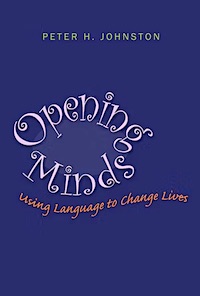
As an example, Johnston shares a conversation hosted by a classroom teacher. The 5th grade students were discussing the book Stealing Home: Jackie Robinson: Against All Odds. During the discussion, a student commented that he didn’t understand what a peer stated. “When you don’t understand what someone said, remember, it’s your job to ask them to explain.” (p. 55). This comment empowered one student to advocate for themselves, honored another student’s original thinking, and reminded the class about how best to hold a productive conversation.
Leadership takeaway: Read Opening Minds to perceive classroom instruction in a new way. This lens will provide a more holistic and authentic understanding of the complexities of teaching and learning.
Immunity to Change: How to Overcome It and Unlock Potential in Yourself and Your Organization by Robert Kegan and Lisa Laskow Lahey
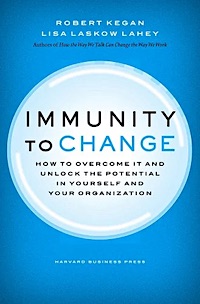
One key to helping teachers and colleagues grow is to cultivate a safe space to take risks. The authors state that in order for people to change, they have to let go of outdated practices. This requires a safe and trusting space in which to engage in this work. The processes provided by Kegan and Lahey, such as surfacing and documenting all of the concerns shared by staff members, help acknowledge their concerns without judgement.
Leadership takeaway: People love to learn yet resist change. This book provides leaders with the skills necessary to enact the former by exploring the latter with educators.
Four Thousand Weeks: Time Management for Mortals by Oliver Burkeman
If you are going to read one book on productivity, this should be it. Burkeman wrote a series of articles for The Guardian on this topic, with the tongue-in-cheek title “This Column Will Change Your Life.” The outcome of that column is this book.
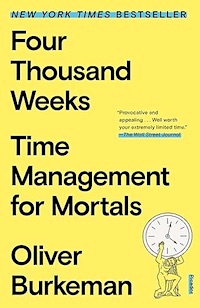
“Procrastination, distraction, commitment-phobia, clearing the decks, and taking on too many projects at once are all ways of trying to maintain the illusion that you’re in charge of things.” (p. 220)
Burkeman advocates instead for first accepting that we only have so much time, both for our work and for our lives in general. (The title cleverly points to the fact that the average human life span is 4000 weeks.) Once we accept the “finitude of time,” we start to prioritize what’s most important each day.
Leadership takeaway: The fact that our days are limited is a message that every school leader needs to hear, and often. Use this book as a constant reminder when prioritizing your time and tasks.
The Art of Gathering: How We Meet and Why it Matters by Priya Parker
I was recommending this text to colleagues before I even finished it. That’s how important The Art of Gathering is for any leader who desires to facilitate productive and positive group work.
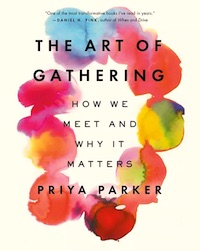
Parker offers a salient guide for anyone looking to improve meetings for the participants and their leaders. An expert in group facilitation and conflict resolution, Parker provides practical strategies for help groups talk about what matters.
As an example, the author recommends developing a “disputable purpose” when preparing for a meeting. This purpose sparks interest and invites healthy debate. Which resource to select when updating the math curriculum, or how to respond to specific student behaviors are ripe for productive discussions.
Leadership takeaway: Lean into the tools recommended in The Art of Gathering to embrace conflict instead of shying away from it. If you envision your school as a learning organization, this is the pathway.
Matt Renwick is currently a systems coach for a regional education agency in Wisconsin. Over the last 23 years, he has served in public education as a principal, athletic director, and classroom teacher.
